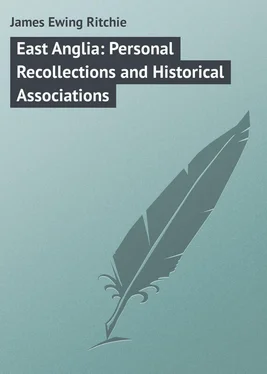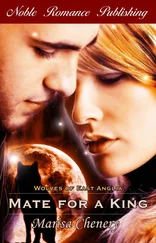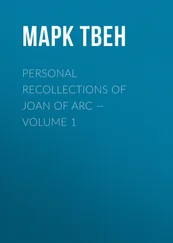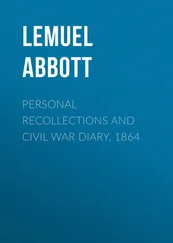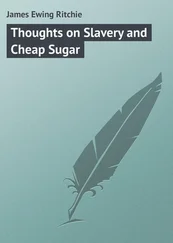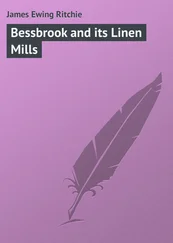James Ritchie - East Anglia - Personal Recollections and Historical Associations
Здесь есть возможность читать онлайн «James Ritchie - East Anglia - Personal Recollections and Historical Associations» — ознакомительный отрывок электронной книги совершенно бесплатно, а после прочтения отрывка купить полную версию. В некоторых случаях можно слушать аудио, скачать через торрент в формате fb2 и присутствует краткое содержание. Жанр: foreign_prose, на английском языке. Описание произведения, (предисловие) а так же отзывы посетителей доступны на портале библиотеки ЛибКат.
- Название:East Anglia: Personal Recollections and Historical Associations
- Автор:
- Жанр:
- Год:неизвестен
- ISBN:нет данных
- Рейтинг книги:5 / 5. Голосов: 1
-
Избранное:Добавить в избранное
- Отзывы:
-
Ваша оценка:
- 100
- 1
- 2
- 3
- 4
- 5
East Anglia: Personal Recollections and Historical Associations: краткое содержание, описание и аннотация
Предлагаем к чтению аннотацию, описание, краткое содержание или предисловие (зависит от того, что написал сам автор книги «East Anglia: Personal Recollections and Historical Associations»). Если вы не нашли необходимую информацию о книге — напишите в комментариях, мы постараемся отыскать её.
East Anglia: Personal Recollections and Historical Associations — читать онлайн ознакомительный отрывок
Ниже представлен текст книги, разбитый по страницам. Система сохранения места последней прочитанной страницы, позволяет с удобством читать онлайн бесплатно книгу «East Anglia: Personal Recollections and Historical Associations», без необходимости каждый раз заново искать на чём Вы остановились. Поставьте закладку, и сможете в любой момент перейти на страницу, на которой закончили чтение.
Интервал:
Закладка:
‘Catherine Gurney,’ writes Caroline Fox, ‘gave us a note to George Borrow, so on him we called – a tall, ungainly man, with great physical strength, quick, penetrating eye, a confident manner, and a disagreeable tone and pronunciation.’ We gather from the same lady that it was Joseph John Gurney who recommended George Borrow to the Committee of the Bible Society. ‘So he stalked up to London, and they gave him a hymn to translate into the Manchow language, and the same to one of their people to translate also. When compared they proved to be very different. When put before their reader, he had the candour to say that Borrow’s was much the better of the two. On this they sent him to Petersburg to get it printed, and then gave him business in Portugal.’
One thing is clear – that Borrow was a lonely man, and evidently one who did not hold the resources of civilization in such esteem as Mr. Gladstone does. He loved Nature and her ways, and people like the gipsies, who are supposed to be of a similar way of thinking. He eschewed the hum of cities and the roar of the ‘madding crowd.’ He was big in body and in mind, and wanted elbow-room; and yet what would he have been if he had not lived in a city, and come under the stimulative influence of such men as Edward Taylor, of Norwich? It is idle to complain of cities, however they sully the air, and deface the land, and pollute the water, and rear the weak and vicious and the wicked – to remind us how low and depraved human nature can become when it is cut off from communion with Nature and Nature’s God. Borrow owed much to cities, and was best appreciated by the men who dwelt in them. There is often a good deal of affectation about the love of rural solitude, nor does it often last long when there is a wife to have a voice in the matter. Yet in Borrow undoubtedly the feeling was sincere, and of him Wordsworth might have written —
‘As in the eye of Nature he has lived,
So in the eye of Nature let him die.’
Lowestoft was a frequent attraction for a youthful ramble – perhaps almost too far, unless one could manage to get a lift in a little yellow-painted black-bodied vehicle called a whisky, which was grandfather’s property, and into the shafts of which could be put any spare quadruped, whether donkey, or mule, or pony, it mattered little, and which afforded a considerable relief when a trip as far as Lowestoft was determined on. At that time there was no harbour, and the town consisted simply of one High Street, gradually rising towards the north, with a fine space for boys to play in between the cliff and the sea, called the denes. I can well remember being taken to view the works of the harbour before the water was let in, and not a little astonished at what then was to me a new world of engineering science and skill. In the High Street there was a little old-fashioned and by no means flourishing Independent Chapel, where at one time the preacher was the Rev. Mr. Maurice, the father of the Mr. Maurice to whom many owe a great awakening of spiritual life, and whose memory they still regard as that of a beloved and honoured teacher. Mr. Maurice was a Unitarian, I believe, and, when he retired, handed over the chapel to my father with the remark that it was no use his preaching there any longer. The preacher in my time was the Rev. George Steffe Crisp, a kindly, timid, tearful man, always in difficulties with his people, and who often resorted to Wrentham for advice. Latterly he retired from the ministry, and kept a shop and school. In this capacity one day my old friend John Childs, of Bungay, the far-famed printer – of whom I shall have much to say anon – called on him, when the following dialogue took place: ‘Good-morning, Mr. Crisp.’ ‘Good-morning, Mr. Childs.’ ‘Well, how are you getting on?’ ‘Oh, very well; but there is one thing that troubles me much.’ ‘What is that?’ ‘That I am getting deaf, and can’t hear my minister.’ ‘Oh,’ was the cynical reply, ‘you ought to be thankful for your privileges.’
Lowestoft is reported to have been a fishing station as early as the time of the Romans; but the ancient town is supposed to have been long engulfed by the resistless sea, for there was to be seen till the 25th of Henry VIII. the remains of an old house upon an inundated spot – left dry at low water about four furlongs east of the present beach. The town has been the birthplace of many distinguished men – of Sir Thomas Allen, for instance, who was steadily attached to the Royal cause, and who after the Restoration rose high in command, and won many a victory over the Dutch and the Algerines; of Sir Andrew Leake, who fell in the attack on Gibraltar; of Rear-Admiral Richard Utbar, also a renowned fighter when England and Holland were at war. To the same town also belong Admiral Sir John Ashby, who died in 1693, and his nephew Vice-Admiral James Mighells. Nor must we fail to do justice to Thomas Nash, a facetious writer of considerable reputation in the latter part of the sixteenth century. The most witty of his productions is a satirical pamphlet in praise of red herrings, intended as a joke upon the great staple of Yarmouth, and the pretensions of that place to superiority over Lowestoft. It must be confessed that Nash is chiefly famous as a caustic pamphleteer and an unscrupulous satirist. For illustration we may point to his battle with Gabriel Harvey, the friend of Edmund Spenser, who desired that he might be epitaphed the inventor of the not yet naturalized English hexameter; and his other battle with Martin Mar Prelate, or the writer or writers who passed under that name, and who have acquired a reputation to which poor Nash can lay no claim. His one conspicuous dramatic effort is ‘Summer’s Last Will and Testament.’ Nash wrote for bare existence – to use his own words, ‘contending with the cold, and conversing with scarcity.’ Nash lived in an unpropitious age. A recent French writer has placed him in the foremost rank of English writers. Dr. Jusserand, the author referred to, in his accounts of the English novel in the time of Shakespeare, tells us Nash was the most successful exponent in England of the picturesque novel. The picturesque novel is the forerunner of the realistic novel of modern times. It portrays the life and fortunes of the picaro – the adventurer who tries all roads to fortune. Spanish in its origin, it developed into a school in which Defoe and Thackeray distinguished themselves. ‘Nash,’ writes the French author, ‘mingled serious scenes with his comedy, in order that his romances might more nearly resemble real life.’ In fact (he writes), ‘Nash does not only possess the merit of learning how to observe the ridiculous side of human nature, and of portraying in a full light picturesque figures – now worthy of Teniers and now of Callot – some fat and greasy, others lean and lank; he possesses a thing very rare with the picturesque school, the faculty of being moved. He seems to have foreseen the immense field of study which was to be opened later to the novelist. A distant ancestor of Fielding, as Lilly and Sidney appear to us to be distant ancestors of Richardson, he understands that a picture of active life, reproducing only in the Spanish fashion scenes of comedy, is incomplete and departs from reality. The greatest jesters, the most arrogant, the most venturesome, have their days of anguish. No hero has ever yet remained imprisoned from the cradle to the grave, and no one has been able to live an irresponsible spectator, and not feel his heart sometimes beat the quicker, nor bow his head unmoved. Nash caught a glimpse of this.’ As an illustration, Dr. Jusserand points to his ‘Jack Wilton’ – ‘The best specimen of the picturesque tale in English literature anterior to Defoe.’ In Lowestoft they ought to keep his memory green.
Читать дальшеИнтервал:
Закладка:
Похожие книги на «East Anglia: Personal Recollections and Historical Associations»
Представляем Вашему вниманию похожие книги на «East Anglia: Personal Recollections and Historical Associations» списком для выбора. Мы отобрали схожую по названию и смыслу литературу в надежде предоставить читателям больше вариантов отыскать новые, интересные, ещё непрочитанные произведения.
Обсуждение, отзывы о книге «East Anglia: Personal Recollections and Historical Associations» и просто собственные мнения читателей. Оставьте ваши комментарии, напишите, что Вы думаете о произведении, его смысле или главных героях. Укажите что конкретно понравилось, а что нет, и почему Вы так считаете.
